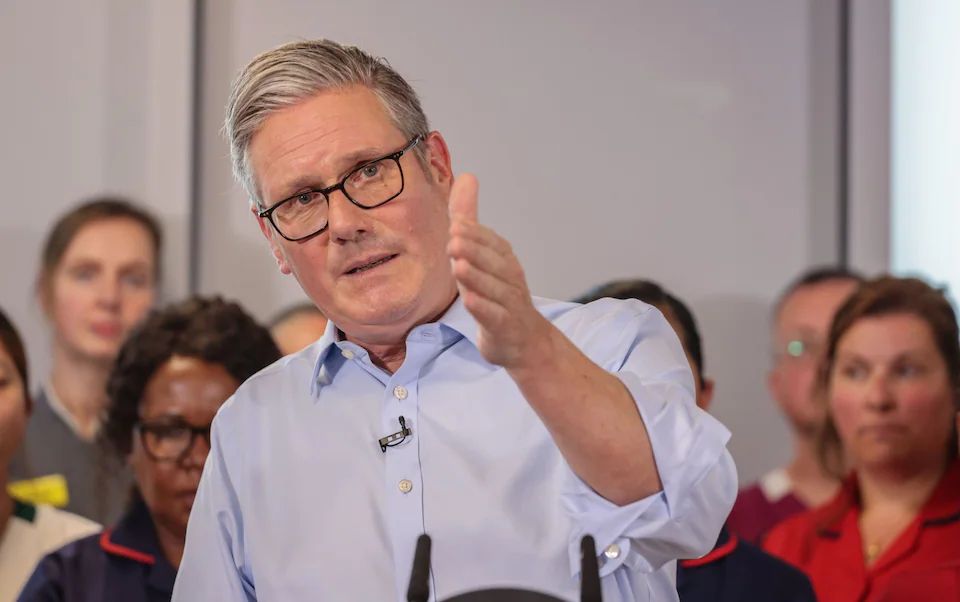British holidaymakers may face higher prices for cruises and ferry journeys to Europe as part of Sir Keir Starmer’s new agreement with the EU, which will see the UK adopt Brussels’ environmental rules for the maritime industry.
Ticket prices are expected to rise as passenger services adjust to the costs of joining the EU’s emissions trading system (ETS), a move that will affect shipping operators, including cruise lines and ferry companies.
Industry insiders have warned that price hikes could mirror those seen in Europe, where fares on some routes have jumped by over 10%. For UK travellers, this could mean an extra £200 on the cost of a seven-day cruise, with luxury cabins already priced around £2,000.
The changes are scheduled to take effect in July 2025, just before the peak summer travel season, potentially impacting millions of British tourists heading to the continent.
The new measures are part of the government’s push to expand the UK’s net zero commitments. Under the revised rules, all maritime firms operating between UK ports will be required to participate in the UK’s ETS. This scheme places a cap on carbon emissions and requires companies to buy permits for the greenhouse gases they emit. If a company exceeds its emissions allowance, it must purchase additional permits from others.
Over time, the emissions cap will be reduced, encouraging firms to invest in greener technologies but also driving up costs in the short term. These expenses are likely to be passed on to passengers.
Initially, the UK ETS will apply only to domestic routes, but ministers plan to extend it to international voyages, aligning more closely with EU regulations.
The European Commission has acknowledged that its own ETS expansion into shipping has led to fare increases. An official report found that surcharges were being added on short sea routes, with ticket prices rising between 3% and 11%. Freight costs rose by up to 5%, while average shipping costs increased by 3.7%.
Industry representatives say similar effects are expected in the UK. One cruise sector insider commented: “There’s no doubt ferry operators and cruise lines will need to recoup these added costs that means higher prices for passengers.”
Another added: “Inevitably, the cost burden on cruise lines will be passed on to consumers.”
Some businesses have criticised the UK Government for rushing into alignment with the EU ahead of a forthcoming international agreement on maritime emissions, expected later this year. If global standards set by the International Maritime Organisation are less demanding, British firms could find themselves at a disadvantage compared to international competitors.
Andy Harmer, UK & Ireland Managing Director of the Cruise Lines International Association, warned that the policy could damage the UK’s position in the global cruise market.
“The cruise industry contributes £5.8 billion to the UK economy and supports over 60,000 jobs,” he said. “To grow sustainably, the UK’s ETS must be in step with international standards. Misalignment could harm our competitiveness.”
The plan has also sparked alarm over the future of essential island ferry services, used by around 2.4 million people annually. Routes serving the Isle of Wight, the Isles of Scilly, and other remote areas are critical lifelines for communities who rely on them for medical care, education, and supplies.
The UK Chamber of Shipping has urged ministers to exempt these routes from the ETS, warning that fuel costs could rise by up to 30%, making many services economically unsustainable.
A spokesperson for the Department for Energy Security and Net Zero defended the plan, saying that linking with the EU’s system will help British businesses avoid additional costs from Brussels’ upcoming carbon border tax and reduce customs red tape.
They added: “These EU figures do not apply to the UK and don’t reflect that costs can fall over time as emissions are reduced. Linking with the EU’s scheme will make trade easier, protect consumers from long-term price shocks, and boost domestic economic growth.”



